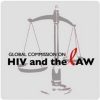The United Nations Development Programme (UNDP) is leveraging its role under two multi-country programmes funded by the Global Fund to Fight AIDS, Tuberculosis and Malaria to develop and roll out an innovative training package to reduce stigma and discrimination at health care settings and enhance HIV, STI and other sexual health services for men who have sex with men (MSM) and transgender people in Asia.
UNDP is the Principal Recipient for the Multi-Country South Asia HIV Programme, which covers eight countries, and provides Technical Assistance for the ISEAN-HIVOS Multi-Country HIV Programme, which is implemented in four countries. The training package, titled “The Time Has Come: Enhancing HIV, STI and other sexual health services for MSM and transgender people in Asia and the Pacific: Training package for health providers to reduce stigma in health care settings”, was jointly developed by UNDP and the World Health Organization (WHO) in 2013.
Highlights
- “The Time Has Come” training package was developed and piloted with over 220 health care workers and community resource people in five countries.
- UNDP and WHO are working with governments to integrate the training into national HIV training programmes and national Global Fund programmes.
- 50 country level ‘master’ trainers are leading translation and customization of the training package to suit local contexts.
- Indonesia has completed translation and integrated the package into its national HIV training programme.
“The Global Fund welcomes the innovative approach of leveraging two multi-country grants to tackle stigma against men who have sex with men and transgender persons in healthcare settings,” stated Maria Kirova, Head, Asia, Europe, Latin America and the Caribbean at the Global Fund to Fight AIDS, Tuberculosis and Malaria. “By bringing together governments, communities and technical partners to develop, pilot and implement this comprehensive training package, UNDP’s approach has enabled national HIV programmes across Asia to benefit from cross-country learning and best practices.”
Over the past month, some 50 local health care professionals and community resource persons have participated in regional ‘master’ training of trainers programmes in Manila (4-7 November) and Bangkok (19-22 November).
“I welcome the training programme because it improves the HIV-response in Asia and the Pacific,” said Haoliang Xu, UNDP Assistant Administrator and Regional Director for Asia-Pacific. “The training contributes to making sure that everyone has access to health services: no matter the class, opinions or sexual orientation.”
National trainings are now being rolled out with government health departments and community based organizations in 12 countries, including Afghanistan, Bangladesh, Bhutan, India, Maldives, Nepal, Pakistan and Sri Lanka as part of the Multi-Country South Asia Programme; and in Indonesia, Malaysia, the Philippines and Timor-Leste under the ISEAN-HIVOS Multi-Country Programme.
“This initiative will sensitize people at different levels,” said Dr. Karma Lhazeen, Chief Programme Officer at the National HIV/AIDS Control Programme in Bhutan. “You have health practitioners, teachers and policy makers here. These three groups can work together in a meaningful way to create awareness of stigma and discrimination faced by MSM and transgender people.”
The modular package was developed and piloted with over 220 health care workers and community resource people in five countries – China, Indonesia, Malaysia, the Philippines and Timor-Leste. It was launched at the 11th International Congress on AIDS in Asia and the Pacific (11th ICAAP) in November 2013.
The development of the training package was based on recommendations from the Global Commission on HIV and the Law which documented stigma in health care settings as a major barrier preventing access to health services, often due to negative attitudes of care providers and incomplete knowledge about sexual orientation and gender identity. The package also supports countries to meet commitments under Resolutions 66/10 and 67/9 of the United Nations Economic and Social Commission for Asia and the Pacific, which call for removal of barriers to access to treatment and care.
“One of the key components of the package is a focus on improving understanding of lesbian, gay, bisexual and transgender issues and the concept of sexual orientation and gender identity,” said Dr. Muhammad Moiz, President, Naz Male Health Alliance. “We are hopeful that in the near future members of the community will be able realize concrete benefits in the form of better access to health services.”
Moving forward under the initiative, participants will adapt and translate the training modules to meet specific challenges in their home countries. UNDP and WHO will work with governments to integrate the training into national HIV training programmes as well as national Global Fund programmes. Indonesia has already completed translation of the training package and integrated it into its national HIV training programme.

